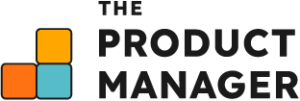If you've ever found yourself in a position to stress about passing due diligence, then congrats—this is an awesome problem to have! It means that you have most likely caught the attention of investors with your product, and they are ready to help you build it.
Well, almost ready. First, they need to make sure your product's reality matches your pitch deck.
This is Part Four and the final installment of our series, The Next Round, which breaks down how to win investors over in a post-pandemic reality. In Part One, we offered a primer on how investor sentiment has changed during the global recession. In Part Two, we gave you a walkthrough of how to create a solid pitch deck with a sound business plan. Then, in Part Three, we explained how to calculate your market valuation and negotiate equity.
Now that we're here, let’s go through the due diligence process together and figure out what kind of documents you'll need to prepare and why investors ask for them.
What Is Due Diligence About?
Due diligence is the process of venture capitalists assessing your company regarding financial, legal, and business risks. This process is usually the next step after VCs decide to invest in your startup.
During due diligence, you have to prove that the big claims you made during your pitch are not false and you have the documents to support them. Apart from that, you need to provide information about your current shareholders, your financial situation, the absence of contingent liabilities, and the compliance of your products with existing legal regulations.
With this evaluation, VCs want to confirm that the target company they are investing in is operating in the “white” area and has nothing shady going on in its operations.
Due diligence might sound a bit lengthy and bureaucratic at first blush, but it is actually something relatively easy to handle as long as you are prepared for it. And to help you prepare in advance, I have curated a list of documents that your investors will most certainly ask you to provide.
The Due Diligence Checklist
Every VC firm has its own set of due diligence documents they ask startups to provide. Fortunately, the vast majority of these document lists will look pretty much identical.
The list that I have compiled for you here, for instance, is a combination of Ycombinator requirements and the due diligence that I have successfully passed for one of my products.
Apart from simply giving you a checklist, I also want to help you increase your chances of passing your due diligence. So, there will be a few callouts in this list where I've taken the liberty of adding extra notes and tips that will help you improve your likelihood of success.
Your Company’s Charter Documents
These basic documents prove that your company exists as a legal entity and has the legal capacity to enter into agreements and conduct business.
1. Stockholder Meeting Minutes
These are the official and formal summaries of the topics that stockholders have discussed and their decisions.
Where to get it: The person taking these minutes (a secretary or maybe one of the stockholders).
2. Any Written Consents of Stockholders
Formal documents showing the consent of a stockholder regarding a certain action (e.g. someone voting in their place).
Where to get it: Your legal team (or outsourcing law firm) usually stores these documents.
3. Articles of Incorporation and Bylaws
This document establishes your company, registers it with the government, and proves your company’s existence as a legal entity.
Where to get it: Again, it is usually your legal team that holds this document.
4. Corporate Org Chart
The Organizational Chart is a document that demonstrates the hierarchy in your company and includes information about all your subdivisions.
Where to get it: You can ask your HR team for this document.
After you have collected the basic documents of your company, it is time to think about your financials.
Your Financial Documents and Business Plan
VCs ask for these documents to understand if you have done your homework in terms of planning your business operations, as well as to assess if your financial situation is healthy.
5. Business Plan
This document describes the details of how you will run your startup as a business, including your strategies, market analysis, competitive analysis, and business model. For early-phase startups, there should also be a plan to validate the idea.
Where to get it: The C-level leadership has this document.
6. Financial Projections
These are your calculations (and assumptions) of your costs, revenue, and profit (or loss/burn) over a certain period of time in the future.
Where to get it: You’ll need to ask your finance folks for this one.
7. Financial Statements
Here you have the costs, revenue, profit, and other financial metrics of your company for the past several years. This includes your general ledger, lines of credit, cash flow, tax returns, accounts payable and receivable, budgets, regulatory documents, balance sheets, leases, liens, tax filings, and other types of financial information.
Where to get it: Again, ask your finance team.
Documents Related To Your Intellectual Property
As a technological startup, your most valuable assets are your technologies, code, and content (unlike real estate and physical assets for traditional businesses). So, your VCs will want to make sure that these assets are under legal protection, and that you will be able to legally challenge anyone who tries to “steal” them.
8. List of Intellectual Assets
In this category, you have all of your copyright-eligible content (e.g. code, visuals, know-how, etc.), trademarks, patents, and the domains you possess. You are usually submitting a document that lists all of the intellectual assets that you and your company own.
Where to get it: The leadership team (head of engineering, head of marketing, etc.) and your legal experts will gather to create this list.
9. Documents Proving Your Ownership of Intellectual Assets
For each asset in the list above, you must submit proof—an official document stating that you own rights to that asset. These can be patent grant papers, trademark registration papers, WHOIS records, etc.
Where to get it: For technical and creative assets, the heads of each department should be able to provide the necessary documents. For anything registered with the government, ask your legal team.
10. Documents of Using Somebody Else’s Intellectual Property
Sometimes your company may have no choice but to use the intellectual assets of others (most likely those of the company founders). In this case, you should have a document proving that the asset's owner has granted the rights for your company to use them.
Where to get it: If you have these documents, they are most probably in the possession of your legal team.
Great news, your intellectual property documents seem to be in good condition too. Now, let’s move on to your stocks.
Documents Related To Securities
As investors will be getting your company’s stock in exchange for their funds, they want to ensure that your documentation regarding the issuance and management of your stocks are in line with their expectations.
11. List of Stockholders
In this document, you must list the names of all people and legal entities holding your company’s stocks and show the number of stocks (and the percentage of total equity) each one holds.
Where to get it: It is either your finance or legal folks who keep this list.
12. List of Option Holders
Apart from stocks, you might have also distributed stock options to your advisors, leadership, or employees. Again, you will need to compile a list of all of them and tell how many options each one has. Moreover, you must include the dates of granting them these options and the price at which they will exercise their option rights.
Where to get it: Ask your finance or HR teams for this.
13. Documents Related to Issuing Stocks
Each time your company issues stocks, your leadership and legal team prepare documents that show the details of this event, including the number of stocks issued, their types (preferred or ordinary ones), etc.
Where to get it: This document is usually in the possession of your board members and legal councils.
14. Shareholder Agreements
Your company has most likely started its existence based on the company charter and shareholder agreement. The latter documents the names of the founders, the number of shares they hold, and the rights and liabilities that each of them has towards the company and each other.
You should also include other equity-related documents, such as information about mergers, joint-venture agreements, amendments to existing security agreements, information about subsidiaries, approvals of stock purchases, valuation documents, etc.
Where to get it: Ask the founders to give you this one.
15. Vesting Documentation
If you have issued stock options and granted them to your staff, advisors, or others, then you should have a vesting schedule. This document shows the timeline of when option holders can exercise their rights and the number of available options.
Where to get it: This schedule is a document that your company usually stores with employment contracts and other staff-related documents. So, ask your HR to give you the schedules for all your employees.
Existing Contracts
There are two major reasons investors want these documents—to prove your existing revenue and solidify your financial projections about future revenue.
16. Your Terms of Service (ToS)
Whether you offer digital or physical products, when people purchase them, they become a party (along with you) of a legal agreement called the Terms of Service. Essentially, this is an ordinary contract that describes the rights and liabilities of both the person buying the subscription and you, "the company."
Where to get it: If you already have it, it is most likely published somewhere on your website. If you don’t have it published (and let's be clear, you should!), then ask your legal team for it.
17. Existing Material Contracts with Customers
These are the ordinary contracts you have signed for delivering services to your customers (usually the big ones, as the small ones use your ToS as a contract).
Where to get it: Ask your finance team, as they usually keep these documents.
18. Existing Contracts with Suppliers
If you are using the products or services of other companies to run your business, you will need to present their purchase agreements and service agreements, too. Your typical suppliers would be infrastructure and data room services (e.g., AWS or Google Cloud), 3rd party services (e.g., AI endpoints, GPT-4, etc.), and parts manufacturers (if yours is a physical product.)
Where to get it: Just like the customer contracts, it is your finance team that holds onto these.
19. Agreements With Future Customers To Enter Into Contractual Relationships
As part of your sales process, you might have already convinced several new companies or individuals to become your customer, but they have not yet signed a contract with you. This is very common, and for your due diligence, I recommend you ask them for a “proof of commitment” document.
Where to get it: If you already have these documents, ask your sales lead to give them to you. If not, you will need to ask your future customers for them.
People and Benefits Documentation
VCs ask for these documents to understand your staff costs, as it is usually a significant part of your cost structure.
20. List of Employees
This is simply the list of all people that hold full-time or part-time employment or hold consulting agreements with your company. This document includes your team’s compensation information, their job positions, their country/state of residence, the presence of non-compete covenants, their benefits (e.g. insurance policies), bonuses, etc.
Where to get it: You must contact your human resources team and ask them to make this list.
21. Severance Compensation Information
If you have to lay any of your people off, what are the types and amounts of compensation you will provide them?
Where to get it: Ask your HR folks about this or find it in your employee handbook.
22. Benefit Plans
This document will list all the employee benefits your company provides as part of their employment contract. It includes insurance coverage, stock options, pension plans, etc.
Where to get it: You guessed it—the HR team.
Trust, but verify.
This is a proverb that is very popular in the Slavic world, and it fully represents the essence of the due diligence process. Investors loved your pitch enough to believe you are the right person to take that startup to great heights. Nevertheless, they need to be able to verify that everything you claim is true.
Read the Other Articles in the Series
In Part One of The Next Round, we explain how VC funding has changed in the wake of the pandemic.
In Part Two, we get granular on how to create and demonstrate your business model, market traction, and financial forecasts in your pitch deck.
Part Three dives into calculating your market valuation and negotiating equity with investors.
If you enjoyed this series, subscribe to our awesome newsletter for biweekly insights on all things product management!


